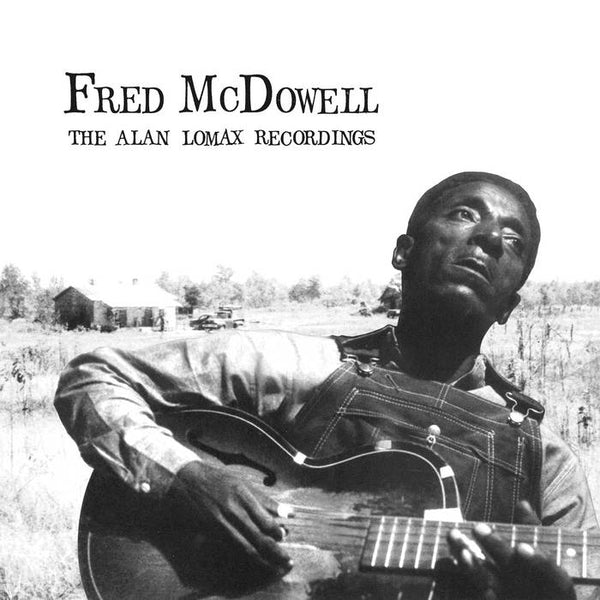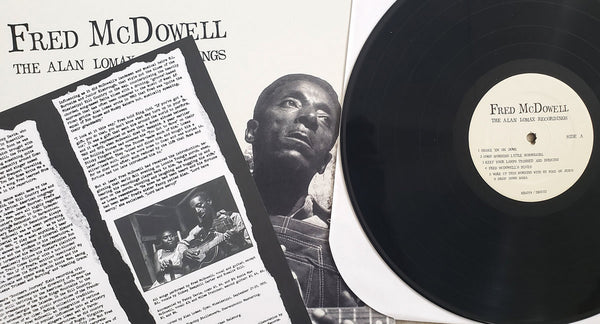McDowell, Fred – The Alan Lomax Recordings - New LP
McDowell offered many great recordings, but I have to wonder if any others match these 1959 recordings. One also has to wonder how the world of American music might have unfolded without this 1959 discovery. I imagine so many took notice, Dylan and Zeppelin to just name a few. On these recordings, McDowell offers many variations of the blues, and explores different tempos but offers plenty of focus on the faster side of country blues, everything tied up into the songs without a hint of excess, sinking deep into it, tying it up tight like reins on a horse tied to a wagon, and bringing that wagon along like a team of stallion, racked with tension, full of release, acoustic music rarely sounded so electric. Essential for any fan of the blues. I don't even like most blues recordings, but these are simply stunning. -- winch (green noise)
"These are Fred McDowell's first recordings—before the folk festivals and blues clubs, before “Mississippi” was inserted in front of his name, before the Rolling Stones covered his “You Got To Move.” They’re the sound of the music McDowell played on his porch, at picnics, and juke joints; with his friends and family; occasionally for money but always for pleasure. Remastered from 24-bit digital transfers of Alan Lomax’s original tapes, and annotated by Arhoolie Records’ Adam Machado and the Alan Lomax Archive’s Nathan Salsburg, they are an illustration of the mind-blowing revelation that was Fred McDowell. On the first day of fall, 1959, in Como, Mississippi, a farmer named Fred McDowell emerged from the woods and ambled over to his neighbor
Lonnie Young’s front porch with a guitar in hand. Alan Lomax and Shirley Collins were there recording the Young brothers’ fife and drum ensemble, as well as the raggy old country dance music of their neighbors, the Pratcher brothers, and they had no idea what to expect from this slight man in overalls. They certainly didn’t expect that Fred would soon become internationally known as one of the most original, talented, and affecting country bluesmen ever recorded."
"Of the many important recordings Alan Lomax made in his trips through the American South in 1959, perhaps none of the artists he documented were as destined to make as much of an impact on the world of popular music as Mississippi Fred McDowell. It remains astounding that a rural blues performer of such talent, already in his mid-fifties when Lomax came across him, had not previously recorded before these performances were taped in September 1959. Country-blues was seldom recorded during the postwar years prior to the folk revival, however, and McDowell made the most of his opportunity to get documented on these 12 songs (one of which is a half-minute instrumental). This is excellent country-blues not much modernized from the Delta greats of the '20s and '30s, featuring McDowell's magnificently versatile guitar, which was adept at both keeping a driving rhythm and crafting keening slide lines. His vocals are rich and assured, and the cuts benefit from some sparse but creatively eerie accompaniment on comb by Fanny Davis on a few cuts, as well as second guitar by Miles Pratcher on some tracks. (Sidney Hemphill Carter and Rosalie Hill take the vocals on one number, "When the Train Comes Along," with McDowell supplying his habitually stinging guitar.) The material includes spirituals, but also get-down uptempo blues and indications that McDowell was aware of some trends beyond his home grounds, particularly on "Good Morning Little Schoolgirl." McDowell would go on to make many other records, but this is a particularly important one both in his history, and in launching the rediscovery of country-blues performers as a whole at the dawn of the '60s folk revival."








